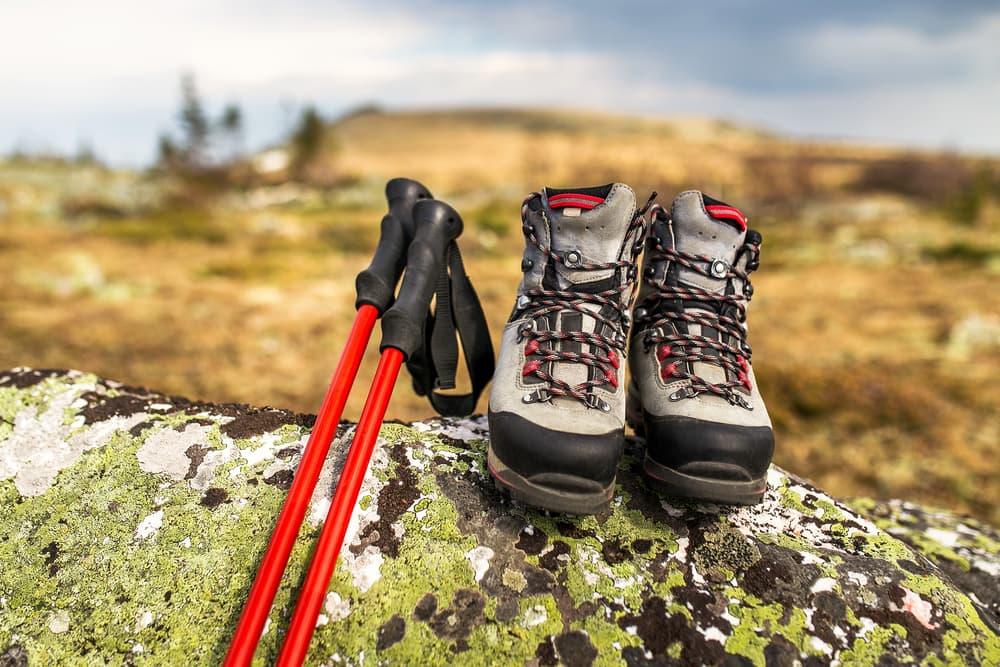A Mini Guide On Hiking Tips For Senior Citizens
Hiking allows senior individuals to move at their own pace, ensuring that their health is not put at risk in any manner
Hiking allows senior individuals to move at their own pace, ensuring that their health is not put at risk in any manner

A Mini Guide On Hiking Tips For Senior Citizens
For senior citizens who deeply appreciate the outdoors, hiking presents an opportunity to blend physical activity with nature. However, ensuring an enjoyable and secure hiking experience requires adequate preparation and caution. Before embarking on your adventure, planning the route and knowing about the terrain is essential. Do check with your doctor and receive the go-ahead before you go on any hiking trips. Let’s decode A Mini Guide On Hiking Tips For Senior Citizens.
Health Benefits Of Hiking For Senior Citizens
Advertisement
Hiking might often bring to mind young backpackers with water bottles, yet it’s something that older adults can relish too. It offers several health advantages for them. For instance, hiking may enhance your heart health, by improving blood circulation and heart muscle strength. Moreover, it boosts lung function by encouraging deep breathing and providing more lung exercise than regular walking.
Best Way To Begin Hiking
Advertisement
For senior citizens new to hiking, a great way to start is with a stroll in a park. Walking is a simple exercise suitable for everyone, regardless of age or fitness. If hiking is unfamiliar, begin by getting comfortable with walking on uneven paths. This prepares your body for more challenging hikes. Begin with 10–20 minutes of daily walking and gradually increase as your body gets stronger and fitter.
Pro Tips For Seniors
Plan Well: Before you set out, make a plan. Research the trail’s level ground and distance. If you need clarification, seek assistance from a park ranger or visitor centre staff. Pack enough water, food, and necessary supplies for your hike. Wear the right gear. Choose well-fitting hiking boots and bring lots of socks, preferably wool ones, and a first-aid kit.
Don’t ‘Over Hike’: A crucial step is to avoid pushing yourself too hard during your hike. While being in nature might be rejuvenating, paying attention to your body and recognising when it’s time to head back is essential.
Share Your Hiking Plans: Having a companion is essential for a pleasant and safe hiking outing. Bringing someone along adds an extra layer of safety. A hiking partner is a smart choice if you need more certainty about the trail or are not feeling your best. However, if you prefer solo hiking, inform others about your plans to avoid mishaps.
Carry Trekking Poles: If your knees, hips, or joints give you trouble, hiking poles can be a big help. They are very convenient for longer treks or challenging paths. Similarly, a walking stick can reduce strain on your feet, ankles, and knees when tackling rough terrain.
Wear The Right Shoes: Suitable footwear is vital for a comfortable experience when preparing for a hike. Hiking shoes are tailored to ensure you enjoy your trek without discomfort.
Trek With The Right App: Smartwatches, cell phones, and hiking apps are excellent tools for monitoring your fitness goals. Many have built-in activity trackers that count steps and calories burned while hiking. Some even offer GPS to guide you home or track distance. These devices also keep tabs on your location, aiding in emergencies and providing weather updates and helpful information about your surroundings.
Wear The Right Clothes: Avoid wearing tight clothes during hikes as it can cause discomfort, affecting your shoulders, back, and hips. Opt for clothing made from synthetic fabrics like nylon. These materials help regulate body temperature, keeping you cooler in hot weather and warmer in chilly winds.
Advertisement
Nepal beckons elderly travellers with open arms, inviting them to embark on a journey that transcends the physical realm
Embarking on a road trip with your grandkids can be an unforgettable adventure that creates lasting memories and strengthens family bonds. Multigenerational travel is becoming increasingly popular as grandparents seek to share their love for exploration and adventure with the younger generation. Whether planning a cross-country expedition or a weekend getaway, here are some valuable… <a class="more-link" href="https://retirement.outlookindia.com/spend/travel/road-trip-with-grandkids-multigenerational-travel-tips-family/">Continue reading <span class="screen-reader-text">Road Trip With Grandkids: Multigenerational Travel Tips</span></a>
Zurich offers a wealth of experiences that cater to the interests and needs of elderly travellers
Get all the latest stories delivered to your inbox
Advertisement
Get all the latest stories delivered to your inbox